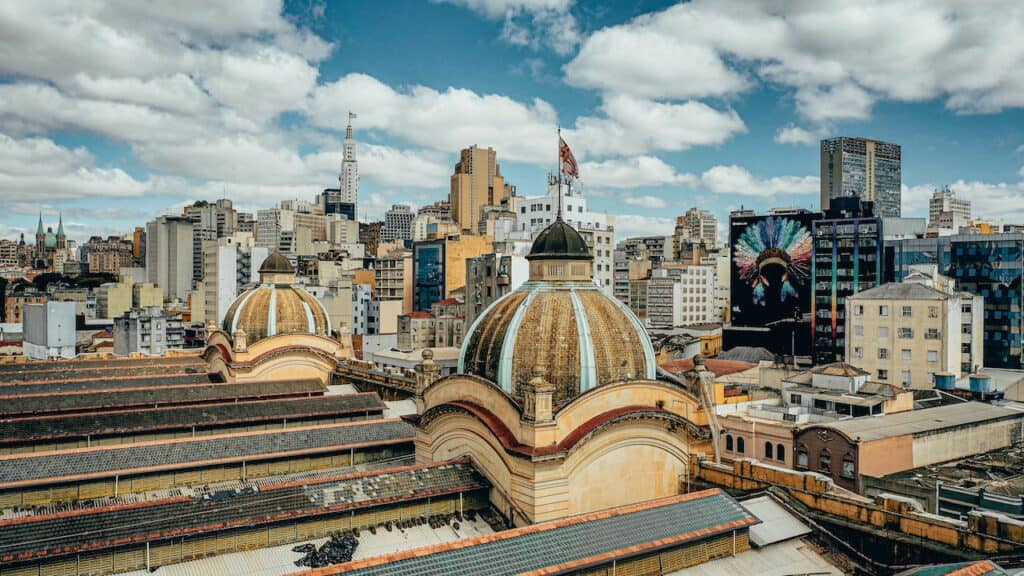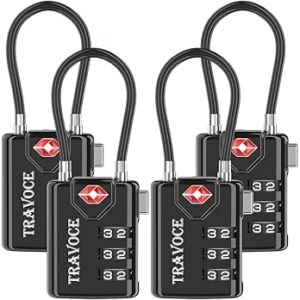Plug For Argentina: What You Need To Know

What is the plug for Argentina? Before you travel, check the information below to make sure your electronic devices are compatible with the outlet type and voltage.
Electrical Summary
Argentina uses outlet types C, I at a voltage of 220V and a frequency of 50 Hz.
Plug Compatibility: Type C, I
Voltage: 220V
Frequency: 50 Hz
Type C

Type I

Can North Americans use Electronics in Argentina without an Adapter?
No! North Americans will need an adapter for the outlets and a transformer for the voltage when traveling to Argentina. North Americans device plugs will not work with the outlet types in Argentina. Also, the voltage in Argentina is different from North American voltages.
Can Europeans use Electronics in Argentina without an adapter?
Europeans do not need a transformer when traveling to Argentina. The voltage in Argentina is the same as in Europe. However, Europeans will need a travel adapter when traveling to Argentina.
What Outlet does Argentina Use?
Type C

Type I

Type C plug sockets are used in Europe, Africa and Asia. They have two round pins and no grounding pin. These plugs are typically used with devices that have a voltage of 220-240V.
Type I plug sockets are used in Australia, New Zealand. They have two flat pins and a grounding pin. These plugs are typically used with devices that have a voltage of 230V.
Recommended Products:
Should I use a VPN when traveling?
YES! Using a VPN when traveling is highly recommended to protect your online privacy and security. Public Wi-Fi networks in hotels, airports, and cafés are often unsecured, making you vulnerable to hackers and data theft. A VPN encrypts your internet connection, safeguarding sensitive information like passwords and banking details. It also allows you to bypass geo-restrictions, granting access to streaming services and websites that may be blocked in certain countries. Additionally, a VPN helps prevent government surveillance and ISP tracking. For a seamless and secure browsing experience while traveling, choose a reliable VPN with fast speeds and strong encryption.
Argentina Travel Essentials:
Is it safe to drink water in Argentina?
In general, tap water should only be consumed from trusted sources. It’s important to note that water quality can vary depending on the region and even within the same city, so it’s always a good idea to check with locals or authorities for specific information about the area you’ll be visiting. Also, conditions and infrastructure may change over time.
To be on the safe side, you can use common precautions such as boiling tap water for at least one minute, using water purification tablets, or drinking bottled water. It’s also important to note that ice may be made from tap water and that foods may be washed or prepared with tap water.
We recommend always packing a filtered water bottle when traveling!
Travel Essentials
Be sure to check our list of travel essentials before your trip!
Should I get travel insurance when traveling to Argentina?
It is generally recommended to get travel insurance when traveling to a different country. Travel insurance can provide financial protection and peace of mind in case of unexpected events, such as medical emergencies, trip cancellations, lost or stolen baggage, or other travel-related mishaps.
Travel insurance can cover various expenses related to your trip, such as medical expenses, emergency medical transportation, trip cancellation or interruption, lost or stolen baggage or personal belongings, and other travel-related expenses.
Before purchasing travel insurance, it’s important to carefully review the policy details, including the coverage limits, exclusions, and any applicable deductibles or copays. You should also make sure that the policy covers any activities or destinations that you plan to participate in or visit during your trip. Click here to price Travel Insurance for Argentina
Frequent Questions:
Where is Argentina located?
Argentina is located in South America, stretching from the southern border of Bolivia to the southern tip of the continent. It shares borders with Chile to the west, Bolivia and Paraguay to the north, Brazil to the northeast, Uruguay and the Atlantic Ocean to the east. Argentina is the eighth-largest country in the world by land area and the second-largest in South America.
What is the capital of Argentina?
The capital of Argentina is Buenos Aires, a vibrant and cosmopolitan city on the eastern shore of the Río de la Plata. Known for its European-style architecture, tango music and dance, rich cultural scene, and lively neighborhoods like Palermo and San Telmo, Buenos Aires serves as the political, economic, and cultural heart of the country.
What language is spoken in Argentina?
The official language of Argentina is Spanish, specifically Rioplatense Spanish, which is distinct in its pronunciation and vocabulary. Italian and indigenous influences have shaped the dialect spoken in Argentina. English is also taught in schools and spoken in tourist areas, especially in larger cities like Buenos Aires. Grab a Spanish phrasebook for your trip.
What currency is used in Argentina?
Argentina uses the Argentine Peso (ARS) as its official currency. Due to inflation and exchange rate fluctuations, it’s recommended for travelers to check current rates before visiting. US dollars are sometimes accepted in tourist areas, and ATMs and currency exchange offices are widely available in cities. Get great rates on currency transfers with Wise
What is Argentina known for?
Argentina is known for its passionate tango culture, world-class beef, and stunning natural landscapes. Iconic attractions include Iguazú Falls, Patagonia, the Andes Mountains, and the wine region of Mendoza. Argentina is also famous for football legends like Diego Maradona and Lionel Messi, as well as its rich literary and artistic traditions.
Is Argentina a safe country to visit?
Argentina is generally safe for tourists, especially in popular destinations like Buenos Aires, Bariloche, and Mendoza. Petty crime such as pickpocketing can occur in crowded areas, so travelers should take standard precautions. Overall, the country welcomes millions of visitors each year and is considered safe for international travel.
What is the weather like in Argentina?
Argentina has a diverse climate due to its vast size and varied geography. The north experiences subtropical weather, the central regions have temperate conditions, and the south (Patagonia) can be quite cold and windy. Seasons are opposite to those in the Northern Hemisphere, with summer from December to February and winter from June to August.
What are the best places to visit in Argentina?
Top places to visit in Argentina include Iguazú Falls, one of the largest and most impressive waterfall systems in the world, and the Perito Moreno Glacier in Patagonia. Buenos Aires offers a mix of history, nightlife, and culture, while Mendoza is ideal for wine lovers. Other must-see destinations include Bariloche, Ushuaia, and Salta.
What food is Argentina known for?
Argentina is world-famous for its beef and barbecue culture, especially the traditional asado, which is a social gathering centered around grilled meats. Other popular dishes include empanadas, milanesas, choripán, and dulce de leche desserts. Argentine cuisine also features strong Italian and Spanish influences, making it both hearty and flavorful.
How expensive is Argentina to visit?
Argentina can be an affordable destination, especially for international travelers exchanging stronger currencies. While inflation affects local prices, travelers often find great value in dining, accommodations, and transportation. Budget and luxury options are widely available, making Argentina accessible for all types of travelers.
Travel Summary
Argentina is a large and diverse country located in South America, known for its rich history, vibrant culture, and stunning natural beauty. The country is the eighth largest in the world and home to over 44 million people.
Argentina’s economy is the second-largest in South America and is highly diversified, with a strong focus on agriculture, manufacturing, and services. The country is one of the world’s largest producers of soybeans, wheat, and beef, and is a major exporter of these products. Argentina also has a well-developed tourism industry, with many visitors drawn to its famous tango dance, delicious cuisine, and stunning landscapes.
Argentina has a rich cultural heritage, with influences from Spain, Italy, and other European countries. This is evident in the country’s architecture, music, art, and literature. Buenos Aires, the capital city, is known for its European-style architecture, vibrant nightlife, and rich cultural scene.
Despite its many strengths, Argentina has faced a number of challenges in recent years, including political instability, economic downturns, and high levels of inflation. The country has also struggled with issues related to social inequality, including poverty and access to education and healthcare.
Overall, Argentina remains a fascinating and dynamic country, with much to offer visitors and residents alike. Its rich cultural heritage, diverse economy, and stunning natural beauty make it a unique and important player in the South American region.
Traveling to another country? Check out our Countries page for more info on countries like Brazil, Chile, Uruguay, Spain, United States, Colombia, Mexico





